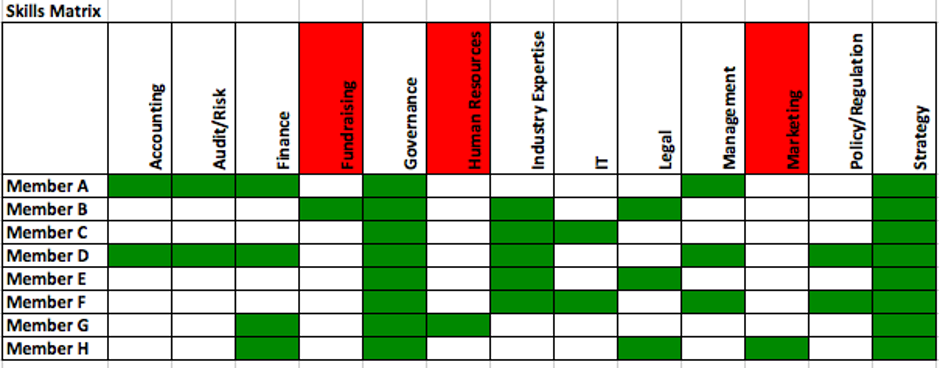
The benefits of gaining a board appointment are considerable – both professionally and personally and there are hundreds of organisations looking for Non Executive Directors at any given moment.
In order to be successfully appointed to a board or to submit an effective application it is important to first understand what skills appointing boards look for in potential board directors.
Top 3 executive skills
People ask me regularly ‘What skills do most boards want in a potential board member?’
The top 3 most requested skills are:
- Finance & Accounting;
- Audit & Risk; and
- Legal.
These top 3 should come as no surprise and generally make up the majority skills of a boards composition. However, whilst many believe that to gain a board appointment you must be a governance professional, lawyer or accountant these are not the only skills required by board, in fact, increasingly marketing professionals are increasingly required by boards.
So, if you are not a lawyer, banker or accountant do not think your board career is over – far from it (some of the best NEDs I have met do not have legal or financial backgrounds). Instead, having at the back of your mind how sort after these skills are can help you craft a convincing reason for being appointed.
Understanding your board skills
Perhaps the most important element of any application is to first understand what your executive skills are and why they are valuable at board level. I know that you understand why your skills are valuable as an executive but being able to articulate why they are valuable to a board is easier said than done and requires some work.
Boards require a diverse matrix of skills but ‘pinning down’ what exactly these skills are can be difficult. There are undoubtedly others but, the list below is a good place to begin and might help you understand where you are likely to contribute your skills at board level.
- Accounting
- Audit
- Building/Property
- Communications/PR
- Finance
- Governance
- HR
- Industry Experience
- IT/Digital
- Legal
- Management Experience
- Marketing/Communications
- OH&S
- Policy Development
- Risk
- Senior Leadership
- Strategy & Planning
Understanding what executive skills are required?
Key to any board application is determining what a board wants in a new Member. In most cases finding out what they are will be fairly straight forward as you will have likely been approached because of your core skills or these skills were clearly outlined in the specifications on an advert/by a recruiter.
However, in some situations the skills required can be less clear. To counter this here you need to make yourself aware of the current/future ‘issues’ that the board is concerning itself with and understand what is occurring at board level. There are a number of ways this can be accomplished. Obviously, if you can, speak with the Chair or the Nominations Committee first (I strongly recommend you do prior to submitting any application) then grasping what they want should be easy. But, if you do not have access to key board members or you are still unclear of the skills required by the board then you will need to find alternative routes to get this information.
In this situation I strongly recommend speaking to the stakeholders of the organisation to get their perspective on the strategic challenges they believe face the organisation and the ones that they also face themselves (as they are likely to be similar). Having gathered this information you should then be able to deduce the skills required at board level to tackle their challenges.
Once you are clear on the skills required by the board the next step is to identify where the skill gaps lie. Creating a skills matrix of the board members is a good way to begin. Consider the fictitious board matrix below. The Red skills are under represented and other skills suggest a deficiency – both might be areas you could contribute.

By undertaking the exercise above, grasping what the most sort after skills are, understanding where you can contribute and what the strategic challenges the board/organisation is facing should form an essential part of your application process.
By taking this approach you will be able to demonstrate being an intelligent, proactive and thoughtful applicant and also be able to speak with confidence about how your skills can contribute and compliment the work of the board. All things any board would value in a new board member.
About the Author
David Schwarz is CEO & Founder of Board Appointments – The UK’s leading board advertising and non-executive career support firm. He has over a decade of experience of putting people on boards as an international headhunter and a non-executive recruiter and has interviewed over one thousand non-executives and placed hundreds into some of the most significant public, private and NFP roles in the world
